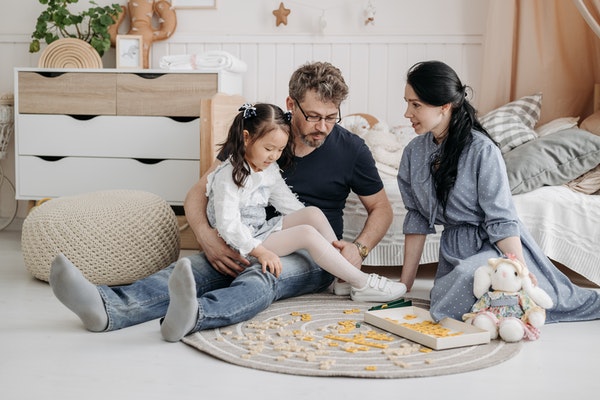Everyday life for younger children is full of encounters dealing with money. Between the grocery store, running errands or playing with toys, it’s all around. Early financial literacy is a very important step to take in building a solid foundation of understanding money. Here are some ways to use everyday life and other skill building activities to teach your children basic money management concepts and prepare them to handle money responsibly in the future.
Information & Tips for Early Financial Literacy
Fortunately, there are plenty of ways to incorporate early financial literacy into your child’s day. Begin the conversation even before the kids are in school by talking about work and money. While shopping, teach your children about price comparison and value. Next time you visit the ATM, teach your child that money doesn’t actually come from a machine. You have to earn it.
Money is an exchange for something you need or want. However, children don’t fully understand the value money holds on life’s necessities. The flash cards, activities, and quizzes through ACCC’s Youth & Money section can be used to teach children to identify different coins and bills, learn the value of each, and to add coins and make change.
Early Financial Literacy Curriculum Basics
Preschool: Focus on identifying different types of coins and counting and sorting them.
Kindergarten: Focus on how much each coin is worth, while drawing equivalencies between different coins (example: 5 pennies make 1 nickel).
First & Second Grade: Focus on how to use the fewest amount of coins to get certain amounts, and whether or not the child has enough money to buy different items at different prices. For children in the second grade, focus on how to make change.
Additionally, here are some key lessons and quick takeaways about money:
- MONEY is exchanged for goods and services.
- BUYING something means exchanging money for it.
- The amount of money needed to buy something is called its PRICE.
- Different goods and services have different prices.
- Some things are FREE – they don’t cost money.
- If you don’t have enough money to buy something, you need to save or buy something else.
Teach these lessons as you point out instances in everyday life about finances as well as taking deliberate time for instruction.
If you’re struggling to pay off debt, ACCC can help. Schedule a free credit counseling session with us today.






